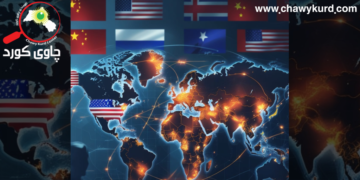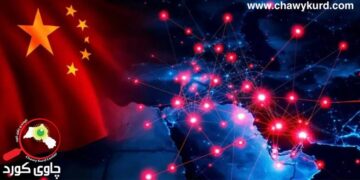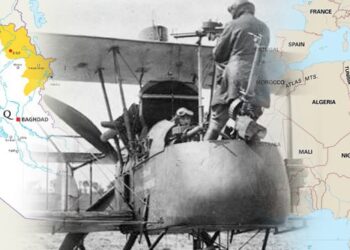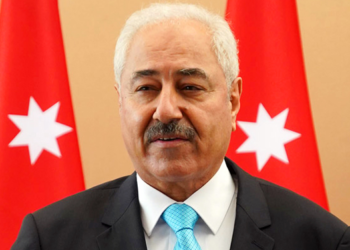“Paradox in the Kurdish Question”
“In human society, there is no inevitability of nature, that is, the inevitability of seasonal changes or natural disasters. That one can always say (no) is a sign of uniqueness and merit, one can always arise, and fight. This is the beginning of Dogin’s discussion of the nation and the national struggle, Ernest Nikish is a “German nationalist-Bolshevik”said.
Patriotism: The erotic “patriotism” constitutes the first principle of Eurasian philosophy. Hence, the nation is used as an absolute phenomenon. The nation adopts Eurasian philosophy as a supreme value, but here the question immediately arises: What does a nation mean? Nation means love, which is why we are talking about erotic patriotism. Using such a definition of the concept of patriotism and describing nation as love seems unrelated and inappropriate. Love, which causes human birth, plays a decisive role in human birth, otherwise human beings would not be born. Love has the greatest power and it is love that launches a wave of generations and more and more fronts emerge, families are formed and continue their generations and fronts. The sum of these, the product of love, forms a nation. Humanity is the product of the love of the world of nations. The nation gives language as a gift to man. In order to be able to speak, express our opinions to them, we use the language that the nation has given us.
The state according to Dogin: The state is a serious creature and is formed by compulsion, but the problem is that the nation cannot always be in love and sometimes someone intends to attack. The existence of the state is necessary to defend the nation against these attacks.”
“Alexander Dogin and the Serbian Mountains”
“If we are careful people, we love our water, our land, we understand their voices. If we learn to understand the voices of the earth, it will be normal for us to hear what the mountains say. In 1992, I once met a group of Serbs in Serbia, whom everyone had betrayed. When we stopped, we asked them:-
“Where are you going and what do you want?”
“We’re going to take that mountain.
“What are you doing with that mountain?” Nothing, but maybe it’s an important strategic point?
“No… No.., that mountain is of no strategic importance. There is really nothing there. No water, no electricity, this is just our Serbian forest, the forest calling us to save it. There are a large number of Croatian groups stationed there, and on the right are Bosnian Muslims. We are going there now and we will die there.
Why did they go there? It can be said: they went crazy, they made him stupid. Didn’t they know that they were well off, that they could eat and sleep, walk and read books and keep flies away? But they go and sacrifice their lives for freedom for the freedom of that mountain, because the mountain has called them. “Come, boys, come, I need your death, your hot lead blood must fall on my lengths,” the forest told them. The mountain told them these things, and they heard the voice of the mountain, and they understood that he was calling them to him. Yes, this is not madness, this is the truth. This is the view of Alexander Dogin. We will discuss the Kurdistan issue from Dogin’s point of view.
Dogin says; a nation is a group of people brought together by historical destiny. The unity of ethnic or religious roots does not make a nation, but destiny makes them a nation. Language and culture certainly play an important role in this regard, but history covers everything. People speak one language for a historical reason and speak one language and do not use another. Certainly the Kurds are a nation, linked together by a common historical, cultural and linguistic destiny. In the structure of Kurdish identity, I noticed something interesting: the “Yezidis” feel and work on their Kurdish identity very deeply. The Yezidis are a minority among the Kurds, but they define or represent the heart and style of the Kurdish nation. According to Dogin, “The Yezidis are the jewel of Kurdish identity. Because they are the implementers and protectors of what can be called the “Kurdish symbol”. “The Kurds have a unified history.





























































